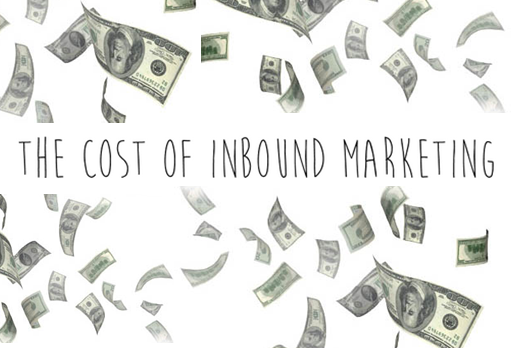
How do agencies quote the cost of inbound marketing? Is it arbitrary – or a rough guess? One of the stickiest conversations to be had when debating an investment in inbound marketing is the price point. And while inbound marketing has been shown time and time again to yield a better ROI than other marketing options, questions about how the price of the service is determined are among the most asked.
They’re fair questions, too – there’s no shame to be had in wanting to know how the agency decides on the quoted cost.
There are several factors that will influence the cost of your inbound marketing campaign, but here are some of the most prominent:
1. The Current State of Your Marketing
Are you just starting out online, or have you spent years developing your online presence? Are you a well-known brand, or are you just dipping your toes into the market?
You starting point will have a major impact on your quoted cost. For example, if you’re already a well-established competitor with a massive following, you’re ahead of the game and will not need to invest in the often slower, more intensive process of acquiring a fan base.
Likewise, if you’ve got a well-built website with strong landing pages and a great user experience, less work will need to be done to tweak and improve those elements of the campaign.
But if you’re starting fresh, there’s much ground to cover. Research and analysis needs to be done in order to build true-to-life personas, landing pages and content assets need to be built and a greater effort must be devoted to building up that first base of followers – an effort that often requires heavier promotion across a longer time span. These elements are all factored into the cost you are quoted; to compete like your big competitors, you’ll need to invest like they did. There are no shortcuts, but if you start by investing in a solid foundation, you’ll not only save money long-term, but see results more quickly.
2. How Quickly You Want to Ramp Up Your Inbound Marketing..
If you want to move quickly, that’s going to mean a few things:
- Multiple areas being developed at once (e.g. Simultaneous creation of landing pages, blog posts, e-newsletters). Instead of devoting budget to projects one at a time, you’ll need to put up a larger number in order to get teams working on each different facet of the campaign at the same time.
- A more considerable budget for content creation (Creating more pieces, more quickly)
- A larger promotional effort (The only way to try and build an audience more quickly is to get your message out to a greater number of people.)
Important to note, however, is that no matter how much budget you throw at a project, there will always be a relatively slower start-up phase until you reach the point of critical mass. More budget may help you get there more quickly, but earning consumer trust and sustained attention will always take some time.
3. The Level of Competition
If you’re entering an online niche with well-established competitors who are already working hard to grab customer attention, competing with giants often requires more budget. Similar to the previous point on how fast you want to scale up, sometimes the amount of competition in a niche will dictate how much needs to be done – and how quickly.
Going up against a juggernaut brand means finding ways to outwit and out-promote them; you’ll need to either be more agile, more compelling, better differentiated or just better funded – sometimes many of those things at once.
Lower competition levels will usually necessitate a less intensive budget requirement. All of this is considered when drawing up your quote.
4. How Aggressive Your Goals Are/Your Level of Commitment
One of the biggest factors that will determine the cost of inbound marketing is… you!
If your business plans to make inbound marketing a cornerstone of your marketing efforts and has set aggressive targets for the results you expect to see back, you’ll need to invest the budget to bring it all into fruition.
Your available resources will always be one of the key deciding factors in a quote budget – but it’s important to be realistic about what can be achieved at different price points. Inbound marketing is no silver bullet; there are tasks, efforts and tangible deliverables that will need to be created to scale up to the level you want to be at.
It’s an Investment… and it Pays Out!
Inbound marketing is not an arbitrary, seat-of-your-pants kind of marketing. It’s measurable, scalable and, when done well, extremely effective. Understanding the factors that influence costs can help put you in the right frame of mind when reviewing the quotes you get back from agencies. Are they too low for what you’ve been promised? Are they on par with what you’d expect them to be in order to see the results you’re looking for?
Don’t get thrown by the numbers – take the time to understand the factors that go in, and you’ll be better positioned to discuss the investment with your team, your boss – and your agency.